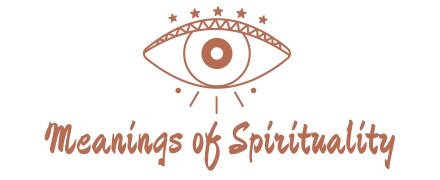Discover the spiritual meanings behind biting your tongue in sleep and what it may symbolize about your subconscious mind.
Ever woken up with a sore tongue, wondering what it means when you bite it in your sleep? This intriguing phenomenon is ripe with spiritual significance. Delving into common interpretations from various cultures to analyzing energetic imbalances, this article uncovers the layers of symbolism tied to this peculiar occurrence. Embrace insights on how it relates to unresolved inner conflicts and suppressed communication, offering a comprehensive guide to decode this nightly mystery.
Key takeaways:
- Chinese tradition links it to unexpressed frustration or anger.
- Native American wisdom sees it as spiritual messages from guides.
- African cultures associate it with hidden conversations or gossip.
- European folklore suggests protection from harmful speech.
- Symbolizes internal struggles, unresolved conflicts, and suppressed communication.
Common Interpretations From Different Cultures

In various cultures, biting the tongue during sleep carries diverse interpretations:
In Chinese tradition, it’s often viewed as a sign of unexpressed frustration or unresolved anger. They believe it signals the need to address underlying feelings.
Native American wisdom links it to spiritual messages. It’s thought to indicate that your spirit guides are trying to communicate an important message or warning.
Some African cultures regard this act as a sign that someone might be gossiping about you. It hints at hidden conversations that you may not be aware of.
Lastly, certain European folklore suggests it could symbolize protection from speaking harmful words. It’s seen as the body’s way of preventing you from saying something regrettable.
Understanding these views offers a richer perspective on what might seem like a mundane incident.
Connection With Unresolved Inner Conflict
Biting your tongue in sleep can symbolize internal struggles. Your subconscious might be highlighting unresolved issues. These conflicts often manifest when you’re most relaxed—during sleep.
These might include:
- Lingering worries about a significant decision.
- Repressed emotions that haven’t been fully addressed.
- A clash between what you feel and what you express.
Listening to these signs can offer insight. Self-reflection can be a powerful tool to understand and resolve these underlying tensions. Consider keeping a journal to track repeated patterns. This can provide clarity over time.
Symbolism in Dream Analysis
Dream analysis often reveals deeper meanings behind everyday occurrences. When biting the tongue in sleep, it can signify various symbolic messages rooted in the subconscious.
First, it may indicate unspoken thoughts or feelings. This symbolic action suggests you might be holding back opinions or emotions in waking life.
Second, it can point to internal conflict. The act of biting one’s tongue might mirror struggles between what you feel and what you express.
Finally, consider it a signal for self-restraint. Dream experts often see this as a reminder to be cautious with words, emphasizing the need for careful communication.
Each of these points helps to uncover underlying psychological and emotional themes that might be at play.
Conveyance of Suppressed Communication
When you bite your tongue in sleep, it might symbolize that you’re holding back something significant in your waking life. This could be an unspoken truth or an emotion you’re not expressing.
Firstly, think about your recent interactions. Have you avoided saying something out of fear or politeness? This act reflects internal tension around communication.
Secondly, consider hidden feelings. Are there emotions you’re not fully acknowledging? Unexpressed feelings can manifest in physical ways during sleep.
Lastly, reflect on self-expression. Do you feel misunderstood or overlooked? Your subconscious might be urging you to speak up more assertively.
In exploring these ideas, you gain insight into what your subconscious mind is trying to convey through this nocturnal habit.
Energetic Imbalances and Their Significance
Energetic imbalances often relate to the flow and distribution of energy within our bodies. When the body’s natural energy pathways are disrupted, it may manifest in various physical symptoms, including biting your tongue during sleep.
Here are some key points to consider:
Energy flows through the body in specific pathways, known in some traditions as meridians. Blockages in these pathways can cause physical disturbances.
Chakras, the energy centers in the body, also play a significant role. An imbalance in the throat chakra, for example, could relate to difficulties with communication, possibly reflected in biting the tongue.
Stress and unresolved emotions can create energetic turbulence. This inner turmoil might manifest physically as a way for your body to signal that something needs attention.
Practices such as meditation, Reiki, or yoga can help restore energetic balance. These practices promote energy flow and harmony within the body, potentially reducing the occurrence of physical symptoms like tongue biting.
Understanding and addressing these imbalances can lead to a more harmonious state, reducing such disturbances during sleep.





